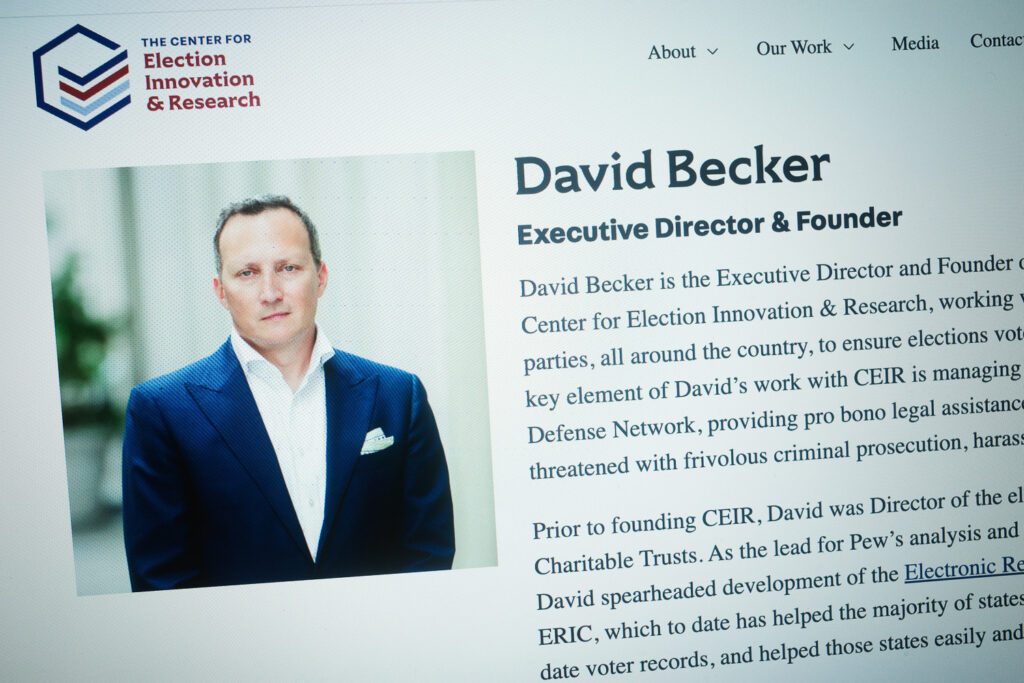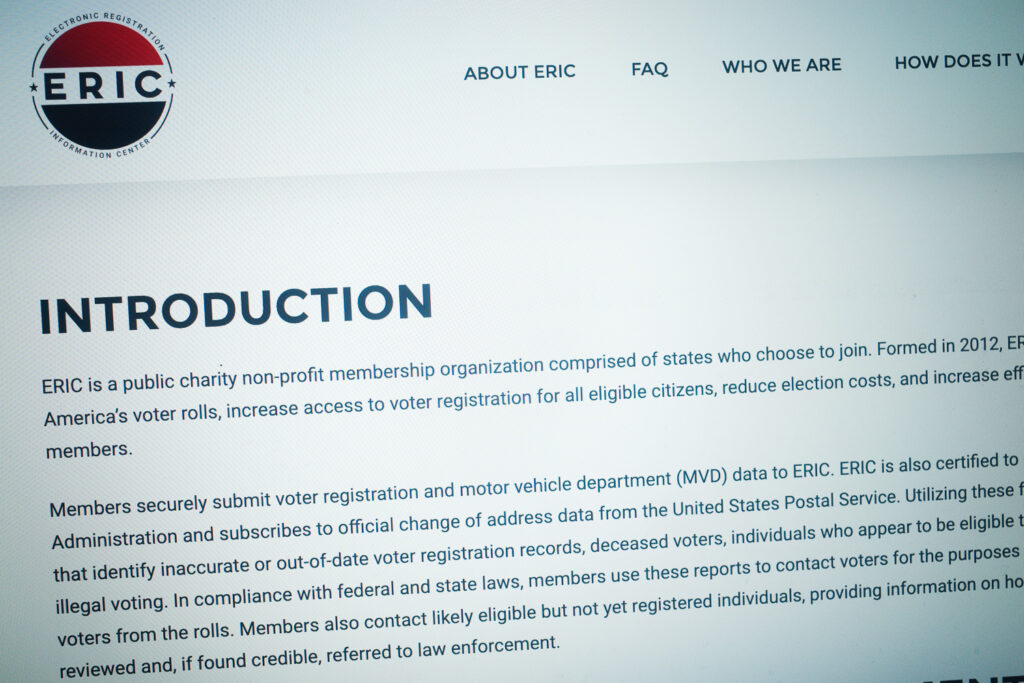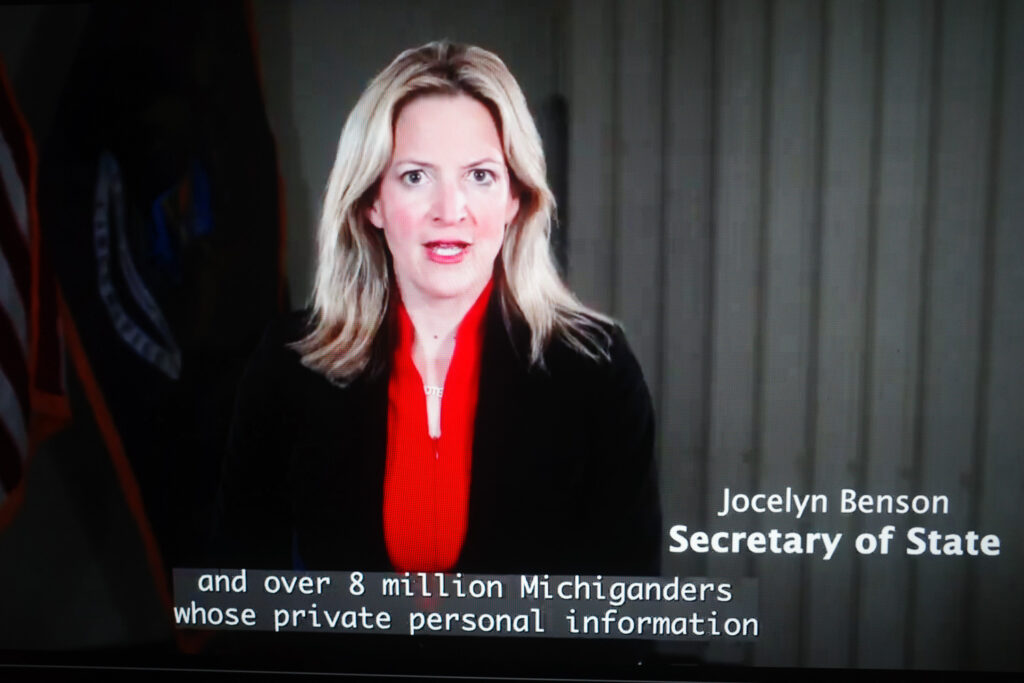Jocelyn Benson is no guardian of Michigan’s voter data, she just plays one online.
Based on the serious face and the tough talk, one might be inclined to take our Secretary of State at her word when she claims to be safeguarding Michigan voter data from the feds.
“The United States Justice Department is trying to get me, Michigan’s chief election officer, to turn over your Social Security Number, driver’s license number and voting information. I told them they can’t have it,” Benson said recently.
Reality tells a different story.
On Benson’s first week as Secretary of State in 2019, one of her first acts was to hand over Michigan’s voter data to a liberal nonprofit, the Electronic Registration Information Center, or ERIC. This includes driver’s license data. (The feds issue Social Security numbers and already have yours.)
It’s not quite accurate to say Benson gives Michigan’s voter data to ERIC. Actually, Benson spends taxpayer money for the privilege of membership. Membership cost $25,000 up front and $20,000 per year.
Yes, Benson uses our money to give away your data to a nonprofit.
And that nonprofit gives your data away to another nonprofit, called the Center for Election Innovation and Research, or CEIR.
ERIC and CEIR share the same father, a liberal operative named David Becker.
Last year, Benson brought Becker to Michigan for a press conference to tout the security of its election system. The two appeared together on “Firing Line.” Benson blurbed Becker’s book, “The Big Truth.”
They’ve made no attempt to present as anything but comrades.
In 2020, on the eve of the election, Becker’s CEIR gave $12 million to Benson’s nonprofit, the Michigan Center for Election Law and Administration. Naturally, the nonprofit spent it on ads featuring Jocelyn Benson.

This cozy web between Benson, Becker, ERIC, and CEIR merits examination. But none has come from the Lansing media.
As a result of Benson joining ERIC, at least two nonprofits have the very same voter data she’s trying to shield from the feds. And they might share it with others, or sell it.
Officially, states join ERIC to identify voters registered in multiple states, so as to eliminate duplicates. Given that Michigan has 500,000 more registered voters than it has voting-age adults, that obviously hasn’t been very successful.
Michigan was the 25th state to join ERIC. The data was important to Becker, as ERIC was his baby. But the social proof of having half of America join the collective was more important.

At its height, 33 states were ERIC members. But eight Republican states have pulled out in recent years, citing concerns about ERIC’s nonpartisan bona fides and data use.
Republican lawmakers tried this year to pull Michigan out of ERIC but did not have the votes.
Is ERIC more trustworthy than the federal government? Or is it just politically useful to Benson?
The Lansing media won’t ask this question and has shown great skill in avoiding it.
So these questions will need to be asked on the campaign trail, as Benson works for a promotion to the governor’s office.
What sounds like a complex web is actually pretty easy to explain: Benson hands over Michigan’s voter data to a friend and pays them to take it. And Michigan taxpayers get to fund both sides of the litigation with the U.S. Department of Justice.
James David Dickson is an enjoyer of Michigan. Join him in conversation on X at @downi75.



